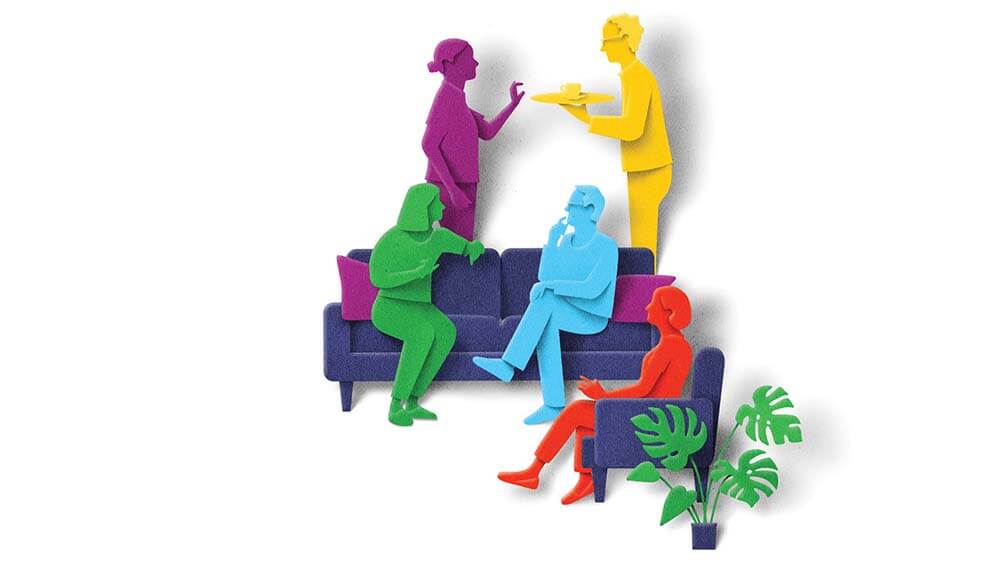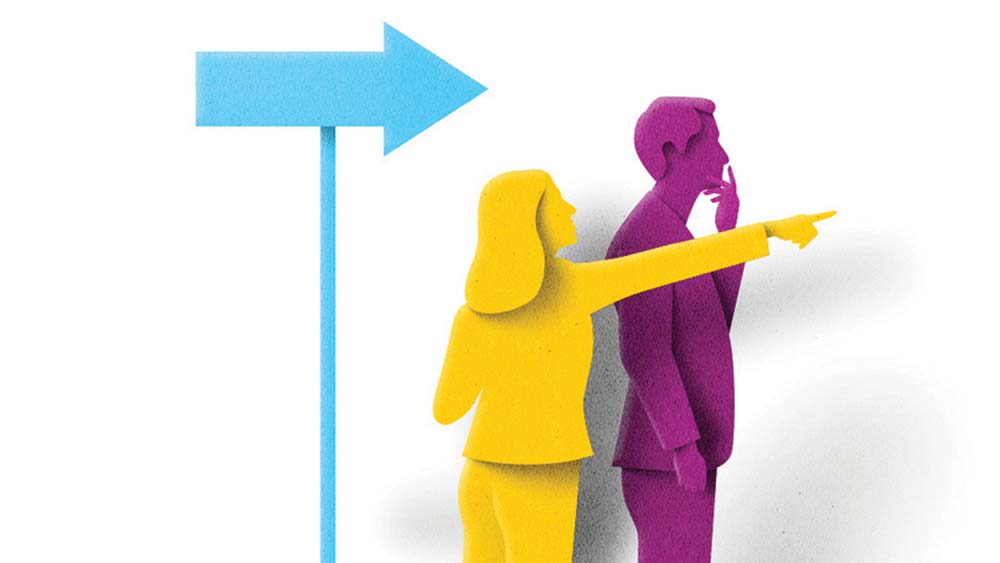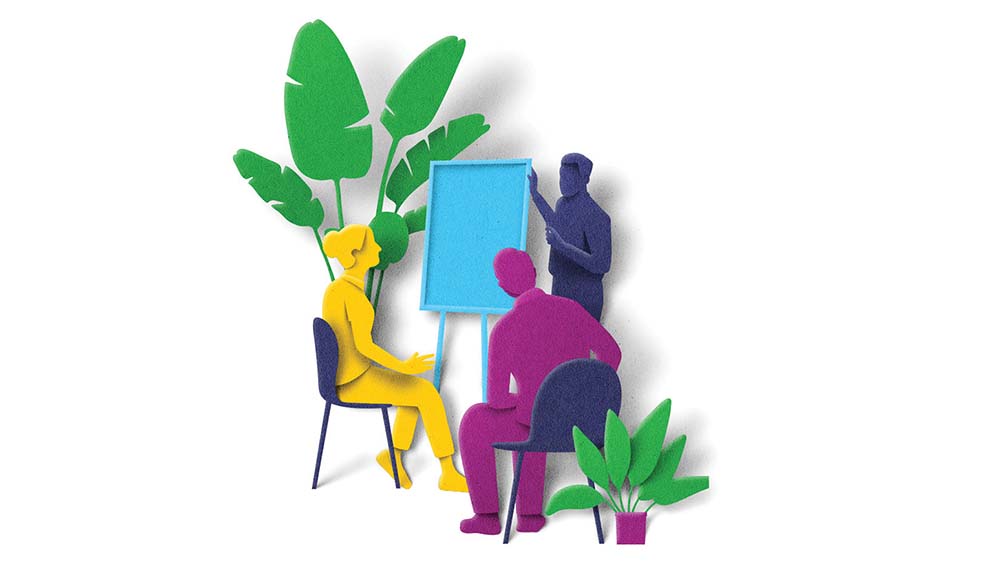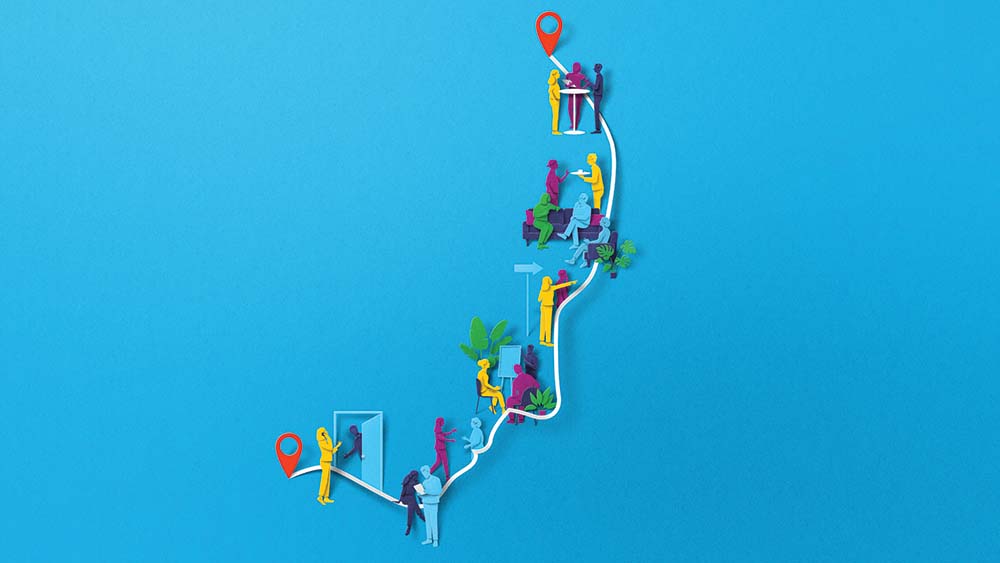
The pandemic changed the way we lead teams and design events. (Illustrations by Eiko Ojala)
Empathy is having a moment. Maybe it’s because we recognize how empathy is needed to keep peace in an increasingly divisive society or that having experienced the shared trauma of living through a pandemic has — or should have — made us more empathetic.
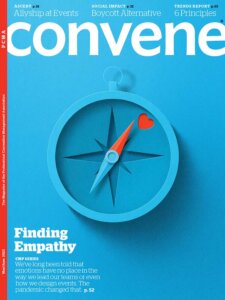
These stories are part of our May/June cover and CMP Series story package. Find the print facsimile edition here
Just Google “leading with empathy” and the resulting mountain of recent articles on that topic could lead you to think we’ve just discovered we have this human trait. But our capacity for empathy is as old as time, part of our evolutionary history, according to Greater Good Magazine, published by the University of Berkeley’s Greater Good Science Center. Contemporary researchers, Greater Good tells us, distinguish between several types of empathy — “cognitive empathy,” sometimes called “perspective taking,” refers to our ability to identify and understand other people’s emotions.
Putting ourselves in others’ shoes is critical when leading a hybrid workforce and designing events today because in both cases, you’re taking into consideration how people have been fundamentally changed by the pandemic. We’ve long been conditioned not to bring emotions to work with us, so this may seem an alien approach to many. We hope to convince you that it’s time for a mindshift.
Learn and Earn
Earn one clock hour of certification by visiting the CMP Series page to answer questions about these articles. The Certified Meeting Professional (CMP) is a registered trademark of the Events Industry Council.
‘It’s About Having Empathy All the Way Around’
In their new book, The Empathy Advantage: Leading the Empowered Workforce, future of work and technology strategists Heather E. McGowan and Chris Shipley argue that post-pandemic, the world’s workforce is empowered with agency and autonomy, and the old ways of managing people no longer apply. Read Part 1 of a 4-part interview
Does Leading With Empathy Mean You’re a Pushover?
McGowan and Shipley share their ideas on how to lead teams with greater empathy — and why that doesn’t make you ineffectual. Read Part 2 of a 4-part interview
What the Back-to-the-Office Challenge Has to Do With In-Person Events
We asked authors McGowan and Shipley for their insights on what an empowered workforce portends for events. Read Part 3 of a 4-part interview
What Does an Event Designed With Empathy Look Like?
Future of work and technology strategists Heather E. McGowan and Chris Shipley — an in-demand speaker and former event organizer, respectively — offer their perspectives on how empathetic design changes the participant experience. Read Part 4 of a 4-part interview
‘Empathy is Everybody’s Responsibility’
Executive Carolyn Dolezal on empathy: How it has made her a better leader and the ways in which she weaves it in event design. Read More
Giving Meeting and Event Participants a Voice
What happened when one organization invited its members to help redesign its annual meeting. Read More
CEO on Creating ‘a Kind Place’ for Staff Members
A conversation with Zena Burgess, the CEO of the Australian Psychological Society, on demonstrating empathy with a remote workforce.Read More

